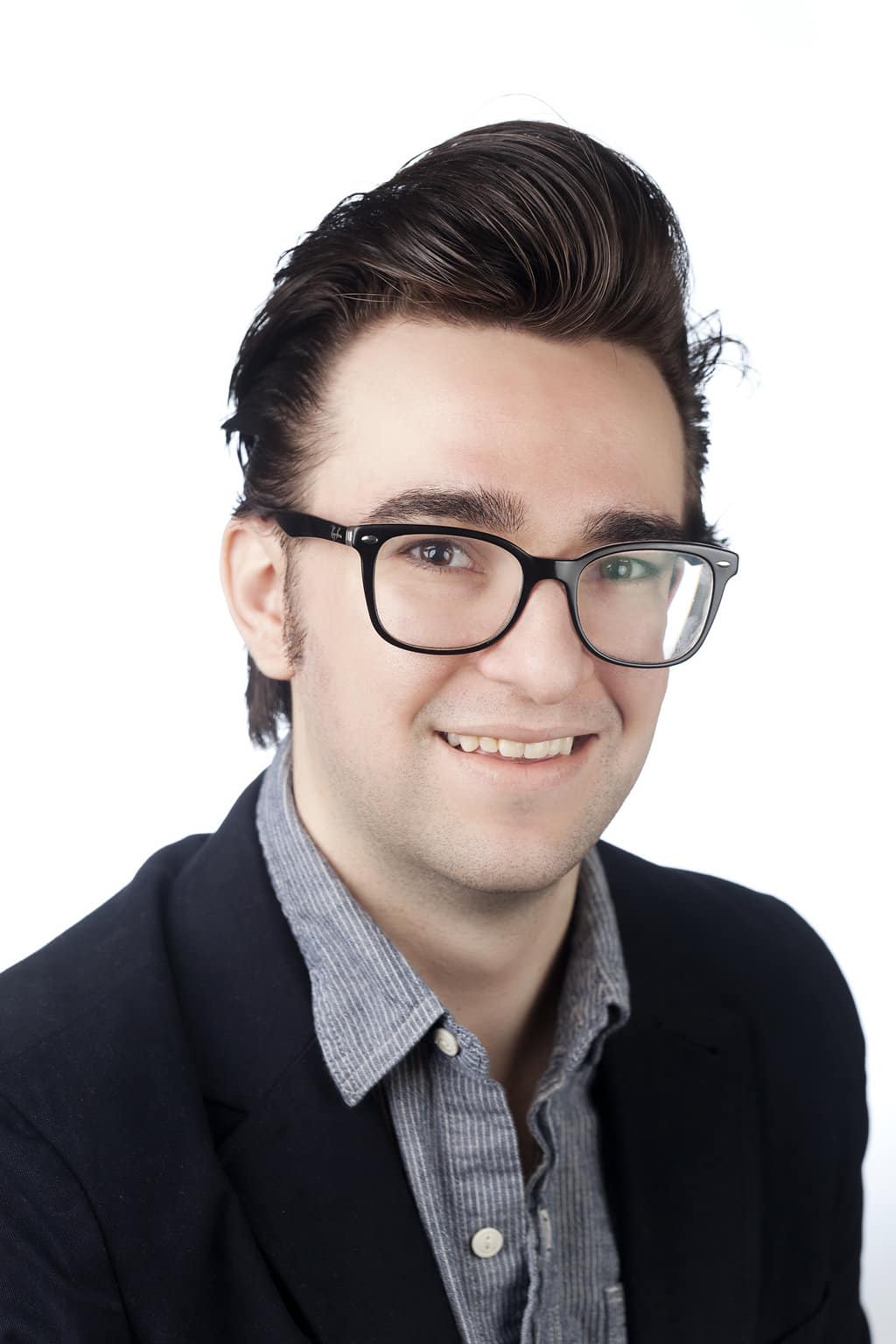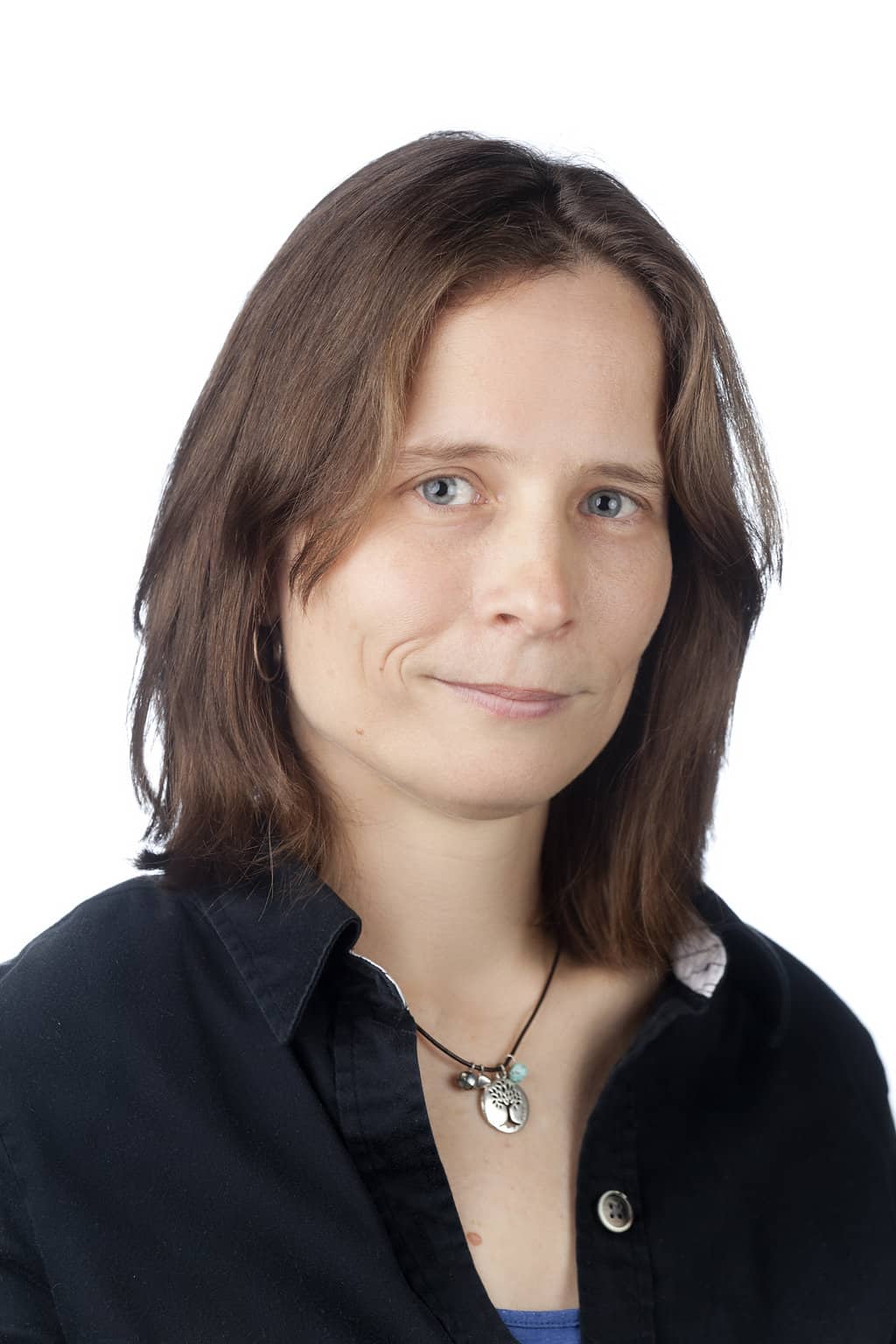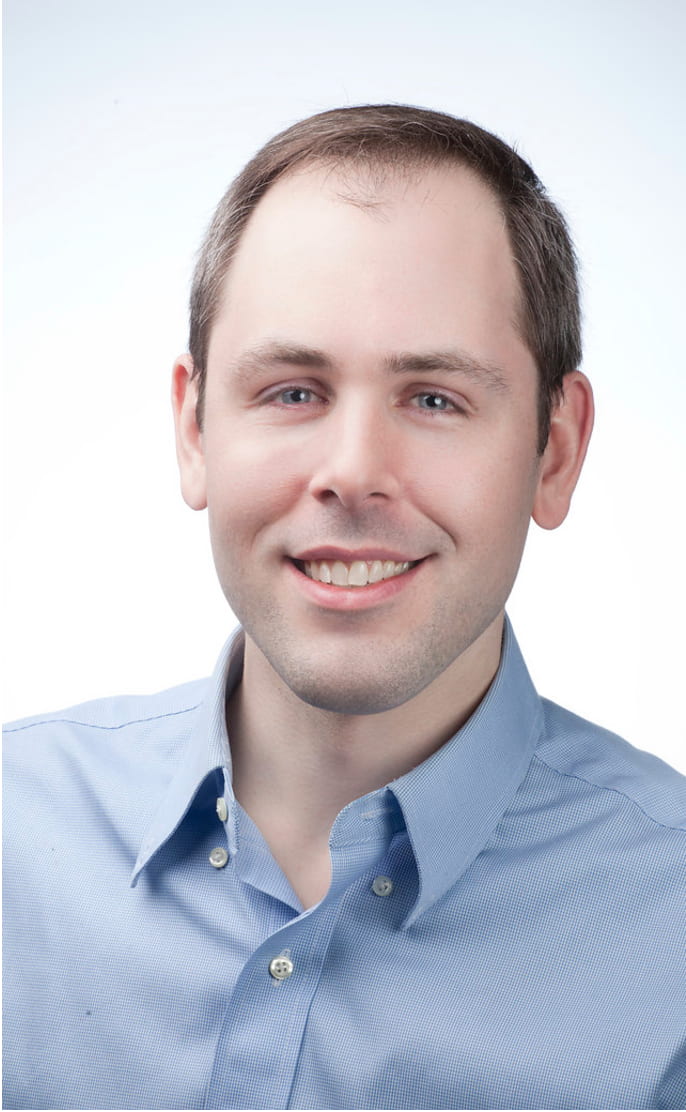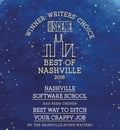Last week we spoke with Matt Kraatz, Meg Ducharme and Scott Schaffer. One of the common themes for all of the graduates we have spoken to for these spotlights are that they wanted to challenge themselves. This next group has an especially unique set of challenges they faced, from newborns to reframing their psyches. Seriously, newborns. But they’ve all overcome the rigor of their tenure here and are on the other side as full-stack junior developers.
Be sure to listen to all of the graduates talk to our friend, Clark Buckner, about their journey into development and about their experience at NSS. And stay tuned for more Graduate Spotlights.
Check out all of the recent grads on the Cohort 15 class website and theCohort E3 class website.
Casey Reed
 If you stopped by Casey Reed’s table at Demo Day a couple weeks ago, it wouldn’t be a tremendous leap to say: “this guy came to Nashville for music.” His display table hosted a collection of records, and his laptop was furnished with stickers like “Discogs” (music database) and “WXNA 101.5” (a radio station where he and his fiancé DJ Saturday nights). But he wanted to “make a switch.” He’d been playing around with computers since he was a kid, and so he jumped feet-first into our full-time bootcamp at NSS. And he’s made a serious splash.
If you stopped by Casey Reed’s table at Demo Day a couple weeks ago, it wouldn’t be a tremendous leap to say: “this guy came to Nashville for music.” His display table hosted a collection of records, and his laptop was furnished with stickers like “Discogs” (music database) and “WXNA 101.5” (a radio station where he and his fiancé DJ Saturday nights). But he wanted to “make a switch.” He’d been playing around with computers since he was a kid, and so he jumped feet-first into our full-time bootcamp at NSS. And he’s made a serious splash.
Coding is not just a matter of technical or fundamental roadblocks. You need to change your focus to the growth you make every day rather than singular struggles that block your path.
Casey’s front-end capstone went above and beyond the curriculum. Pulling from personal predicament (a colossal record collection and no effective inventory management), CuePoint is a “mobile application built within the Ionic framework that helps vinyl record collectors during the brick-and-mortar shopping experience. Shoppers can get more info about their selections, add those selections to their established Discogs profile, and look back at past shopping trips.” Casey first built the app in an AngularJS framework to cement the concept and user experience then ported over to Ionic (non-native mobile framework) once he had a functional MVP.
Cohort 15 was well-known at NSS as formidable ping-pong opponents; when they weren’t actively building and learning, they were triumphing table-tennis. Casey’s server-side app unobtrusively calculated stats for easy access to bragging rights. After a game, players would enter their score and their opponents. All of this information was stored in a SQL database in a Azure-hosted ASP.NET backend and used Angular Charts for data visualization. Casey also used his limited free time to “whip up” a quick Chrome extension that quizzed users on Jeopardy questions and kept track of their scores.
Casey’s time here echoes many of the sentiments we’ve heard from past grads: “My favorite moments during NSS were the times when two or three weeks of mysteries finally click into a single concept. While you’re trying to soak up as much information as possible from the bootcamp firehose, it’s easy to feel like you’ve missed REALLY learning the last few lessons. You might feel rushed or dismayed because you’re “not keeping up.” But I found that, more often than not, there’s a singular point where hours and hours of practice finally start to make sense and your current lessons are reframed with everything you’ve learned.”
Listen to Casey’s interview with Clark Buckner about his NSS experienceand check out Casey’s profile.
Debbie Bourne
 Debbie Bourne has a rich background spent wearing many different hats. She earned an MA in forensic psychology and spent some time counseling. When she moved to Nashville, she transitioned into historic site administration and started working at the Andrew Jackson Hermitage. While serving as the Guest Services Manager, she also took on the role of managing all of the IT side of operations, including hardware, software and networking. This is where the “I should be a developer” seed was planted.
Debbie Bourne has a rich background spent wearing many different hats. She earned an MA in forensic psychology and spent some time counseling. When she moved to Nashville, she transitioned into historic site administration and started working at the Andrew Jackson Hermitage. While serving as the Guest Services Manager, she also took on the role of managing all of the IT side of operations, including hardware, software and networking. This is where the “I should be a developer” seed was planted.
After seeing her co-workers and employees interact with technology, it was apparent to Debbie how much of a difference it made when an app was intuitive. When unintuitive technologies ate up time that the staff should have been spent interacting with guests, Debbie was struck with inspiration. “Lets see what we can do with this. Can we make life easier for people? And help them become more productive, especially in the workplace?”
Given how she likes for things to work correctly and efficiency, Debbie built her 2 capstones around helping managers and employees become more efficient. Say What!?, Debbie’s frontend capstone, was born from her experience of writing performance reviews in her previous life. And hating it. She found that providing constructive feedback with just the right tone was next to impossible, so she used the tools she’d gathered in her first 3 months at NSS to concoct a solution. She created an AngularJS app that allows for managers to select quantitative performance marks and receive suggestions on what to write based on that selection.
Debbie’s server-side app (.NET/MVC) is a benefits portal so human resource personnel can log in, see a dashboard of employees and the benefits they have. This app provides a simple space to add onboarded employees and adjust their benefit earnings. One of the great user experience features is the accrual calculation of PTO so this does not need to be calculated on-the-fly.
Just keep pushing and at some point, you’ll look back and say “wow, I really have learned so much in such a short time”.
Debbie was revered in her time here as a valuable, supportive teammate and a champion of positive collaboration. While Debbie originally hit a mental roadblock in the program, she pushed through it and was able to truly execute her original mission: create intuitive, functional, and efficient applications.
“You are building a foundation of knowledge at NSS by hitting so many topics so quickly. How you build upon that foundation after you complete the program really decides what kind of a coder you’ll be. Earn that foundation and then keep building on it and you will be an excellent coder with a successful career.”
Listen to Debbie’s interview with Clark about what inspired her to become a developer and check out Debbie’s profile.
David Cramb
 David Cramb’s last year has been a special sort of chaotic: working full-time, mastering the art of coding from scratch, and losing sleep thanks to the newest addition to his household in April of this year. “It’s very possible that I am the only student who committed to NSS while my wife and I were expecting (this might make me the dumbest student, too).” But he pulled it off.
David Cramb’s last year has been a special sort of chaotic: working full-time, mastering the art of coding from scratch, and losing sleep thanks to the newest addition to his household in April of this year. “It’s very possible that I am the only student who committed to NSS while my wife and I were expecting (this might make me the dumbest student, too).” But he pulled it off.
David had been working in sales for the last 10 years, and the last 4 of those at Dell. While technology very much interested him, he was under the impression that software development was for those-mathy-fellows. Once his notions were shattered, and he was “ready to use his mind in a different capacity,” he looked to NSS.
As an avid gamer, and a man with little free-time this year, David’s frontend capstone was born out of necessity. Game Backlog Manager is a tool for similar game-fanatics to search for games they have their eye on, add them to a backlog, and mark them as completed once the user gets around to them. Here’s the catch: the longer the game stays in your backlog, the less points you get for it. That’s right, the Game Backlog Manager is a game itself. Nerds. The app is built with external data from the Giant Bomb API, a Firebase backend, an AngularJS Framework MVC frontend and a Materialize Design user interface.
Now, you would think that with a toddler running around his house, David’s server-side app, Monster Maker would be meant to entertain kids, nope. It’s for David. “I wanted to prototype an idea for a monster-editor I’ve had for a long time.” With a MSSQL database in a C#/.NET backend, most of the captivating features come from the FabricJS library he used in the frontend to manipulate the placement of the odd assortment of monster limbs and accessories. David also used this tool for efficient data accessibility because instead of users having to save their creations as images, they can save the positioning of each entity. To David, this means endless possibilities as far as monster battles with custom animation.
When you're writing code, keep your end goal in mind and think through your steps backwards.
David’s “free time” will now be spent “working on revising TREE (Tennesseans Reclaiming Education Excellence)’s website” and trying his hands at making a clone of Phase10 (a card game).”
Listen to David’s interview with Clark about how he is using technology to do what he loves and check out David’s portfolio.







